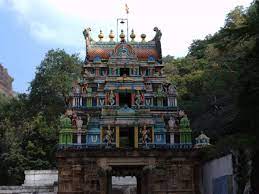In a recent update from Andhra Pradesh, the Indian National Trust for Art and Cultural Heritage (INTACH) is striving to attain UNESCO recognition for the annual ‘Paruveta’ festival, also known as the ‘mock hunting festival,’ celebrated at the Sri Narasimha Swamy temple in Ahobilam.
Securing Heritage Status
INTACH is pushing for the festival to receive an ‘intangible cultural heritage’ title from UNESCO, highlighting its significance in preserving age-old traditions and cultural practices.
Understanding Intangible Cultural Heritage
Definition and Significance
Intangible cultural heritages encompass traditions, festivals, and skills passed down through generations, serving as pillars of cultural identity and communal harmony. The Paruveta festival stands as a unique heritage celebration, symbolizing unity and reverence.
The Paruveta Festival: A Cultural Journey
Festival Rituals
During the Paruveta festival, the deity from the temple’s inner sanctum embarks on a journey to the 32 Chenchu tribal villages surrounding Ahobilam for a duration of 40 days. This ritual signifies a spiritual connection between the temple and the tribal communities.
Historical Origins
The festival traces its roots back to the incarnation of Lord Vishnu as Narasimha in Ahobilam. Legend has it that Narasimha married Maha Lakshmi, reborn as Chenchulakshmi, a tribal girl, cementing the bond between the divine and the earthly.
Seeking UNESCO Recognition
Current Status
The matter of UNESCO recognition for the Paruveta festival is undergoing review by the Sangeet Natak Academy, the designated authority for such deliberations. If successful, the festival will join the ranks of globally recognized intangible cultural heritages.




